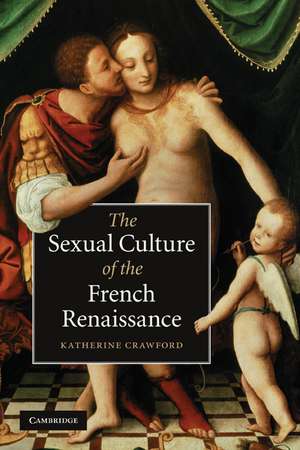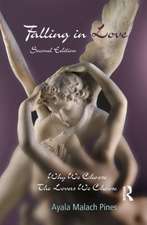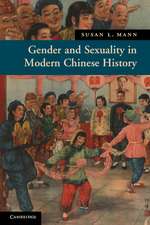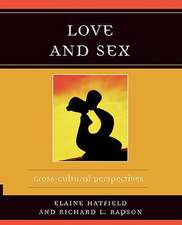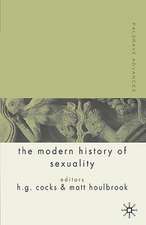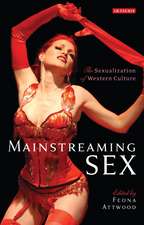The Sexual Culture of the French Renaissance: Cambridge Social and Cultural Histories, cartea 14
Autor Katherine Crawforden Limba Engleză Paperback – 21 apr 2010
| Toate formatele și edițiile | Preț | Express |
|---|---|---|
| Paperback (1) | 289.78 lei 6-8 săpt. | |
| Cambridge University Press – 21 apr 2010 | 289.78 lei 6-8 săpt. | |
| Hardback (1) | 697.62 lei 6-8 săpt. | |
| Cambridge University Press – 21 apr 2010 | 697.62 lei 6-8 săpt. |
Din seria Cambridge Social and Cultural Histories
-
 Preț: 289.91 lei
Preț: 289.91 lei -
 Preț: 208.95 lei
Preț: 208.95 lei -
 Preț: 287.07 lei
Preț: 287.07 lei -
 Preț: 342.09 lei
Preț: 342.09 lei -
 Preț: 306.86 lei
Preț: 306.86 lei -
 Preț: 420.14 lei
Preț: 420.14 lei -
 Preț: 343.60 lei
Preț: 343.60 lei -
 Preț: 434.93 lei
Preț: 434.93 lei -
 Preț: 282.54 lei
Preț: 282.54 lei -
 Preț: 288.04 lei
Preț: 288.04 lei -
 Preț: 286.30 lei
Preț: 286.30 lei -
 Preț: 294.32 lei
Preț: 294.32 lei -
 Preț: 352.30 lei
Preț: 352.30 lei -
 Preț: 287.87 lei
Preț: 287.87 lei -
 Preț: 324.40 lei
Preț: 324.40 lei -
 Preț: 286.30 lei
Preț: 286.30 lei -
 Preț: 317.11 lei
Preț: 317.11 lei -
 Preț: 338.80 lei
Preț: 338.80 lei - 14%
 Preț: 699.67 lei
Preț: 699.67 lei -
 Preț: 337.84 lei
Preț: 337.84 lei -
 Preț: 297.32 lei
Preț: 297.32 lei -
 Preț: 297.91 lei
Preț: 297.91 lei -
 Preț: 397.94 lei
Preț: 397.94 lei
Preț: 289.78 lei
Nou
Puncte Express: 435
Preț estimativ în valută:
55.45€ • 58.05$ • 45.88£
55.45€ • 58.05$ • 45.88£
Carte tipărită la comandă
Livrare economică 05-19 aprilie
Preluare comenzi: 021 569.72.76
Specificații
ISBN-13: 9780521749503
ISBN-10: 0521749506
Pagini: 312
Ilustrații: 21 b/w illus.
Dimensiuni: 153 x 228 x 14 mm
Greutate: 0.5 kg
Editura: Cambridge University Press
Colecția Cambridge University Press
Seria Cambridge Social and Cultural Histories
Locul publicării:Cambridge, United Kingdom
ISBN-10: 0521749506
Pagini: 312
Ilustrații: 21 b/w illus.
Dimensiuni: 153 x 228 x 14 mm
Greutate: 0.5 kg
Editura: Cambridge University Press
Colecția Cambridge University Press
Seria Cambridge Social and Cultural Histories
Locul publicării:Cambridge, United Kingdom
Cuprins
Introduction: sexual culture? France? Renaissance?; 1. The renaissance of sex: Orpheus, mythography and making sexual meaning; 2. Heavens below: astrology, generation and sexual (un)certainty; 3. Neoplatonism and the making of heterosexuality; 4. Cupid makes you stupid: 'bad' poetry in the French Renaissance; 5. Politics, promiscuity and potency: managing the king's sexual reputation; Conclusion: dirty thoughts; Bibliography.
Recenzii
'Beautifully written, lively, and original, Katherine Crawford's study of French Renaissance sexual culture makes a compelling case for reading sexuality through poetry, poetic theory, astrology, and philosophy in unusual ways. Providing an anatomy of some of the lesser-examined elements that contribute to the development of sexual ideology in a given culture, The Sexual Culture of the French Renaissance makes an important contribution, not only to the study of sexuality in Renaissance France, but to sexuality studies more generally.' Carla Freccero, University of California, Santa Cruz
'The Sexual Culture of the French Renaissance fills an important gap in the history of sexuality. Before Crawford's book, the contribution of the sixteenth-century thinkers to the creation of modern, regulatory sexuality was unclear. Crawford shows how French writers, especially poets, refigured Italian neo-Platonism and Petrarch's verse to create a distinctly French, thoroughly heterosexual normativity. French historians, literary specialists, students of gay history and Renaissance scholars of all sorts should read The Sexual Culture of the French Renaissance.' Kathryn Norberg, University of California, Los Angeles
'This is an unusual study, full of surprises. It is grounded in a deep and wide-ranging knowledge of primary sources, and an awareness of the many strands and prejudices of modern writing on sexual matters. Crawford revels in the contradictions that she handles so deftly, juggling with multiple flows of influence.' The Times Literary Supplement
'This ambitious and convincing volume … has the merit of providing material for scholars and students in a variety of disciplines and, last but not least, is to be particularly commended for its strategic use of visual sources.' Sara F. Matthews-Grieco, European History Quarterly
'The Sexual Culture of the French Renaissance fills an important gap in the history of sexuality. Before Crawford's book, the contribution of the sixteenth-century thinkers to the creation of modern, regulatory sexuality was unclear. Crawford shows how French writers, especially poets, refigured Italian neo-Platonism and Petrarch's verse to create a distinctly French, thoroughly heterosexual normativity. French historians, literary specialists, students of gay history and Renaissance scholars of all sorts should read The Sexual Culture of the French Renaissance.' Kathryn Norberg, University of California, Los Angeles
'This is an unusual study, full of surprises. It is grounded in a deep and wide-ranging knowledge of primary sources, and an awareness of the many strands and prejudices of modern writing on sexual matters. Crawford revels in the contradictions that she handles so deftly, juggling with multiple flows of influence.' The Times Literary Supplement
'This ambitious and convincing volume … has the merit of providing material for scholars and students in a variety of disciplines and, last but not least, is to be particularly commended for its strategic use of visual sources.' Sara F. Matthews-Grieco, European History Quarterly
Notă biografică
Descriere
An examination of how Renaissance textual practices and new forms of knowledge transformed notions of sex and sexuality in France.
